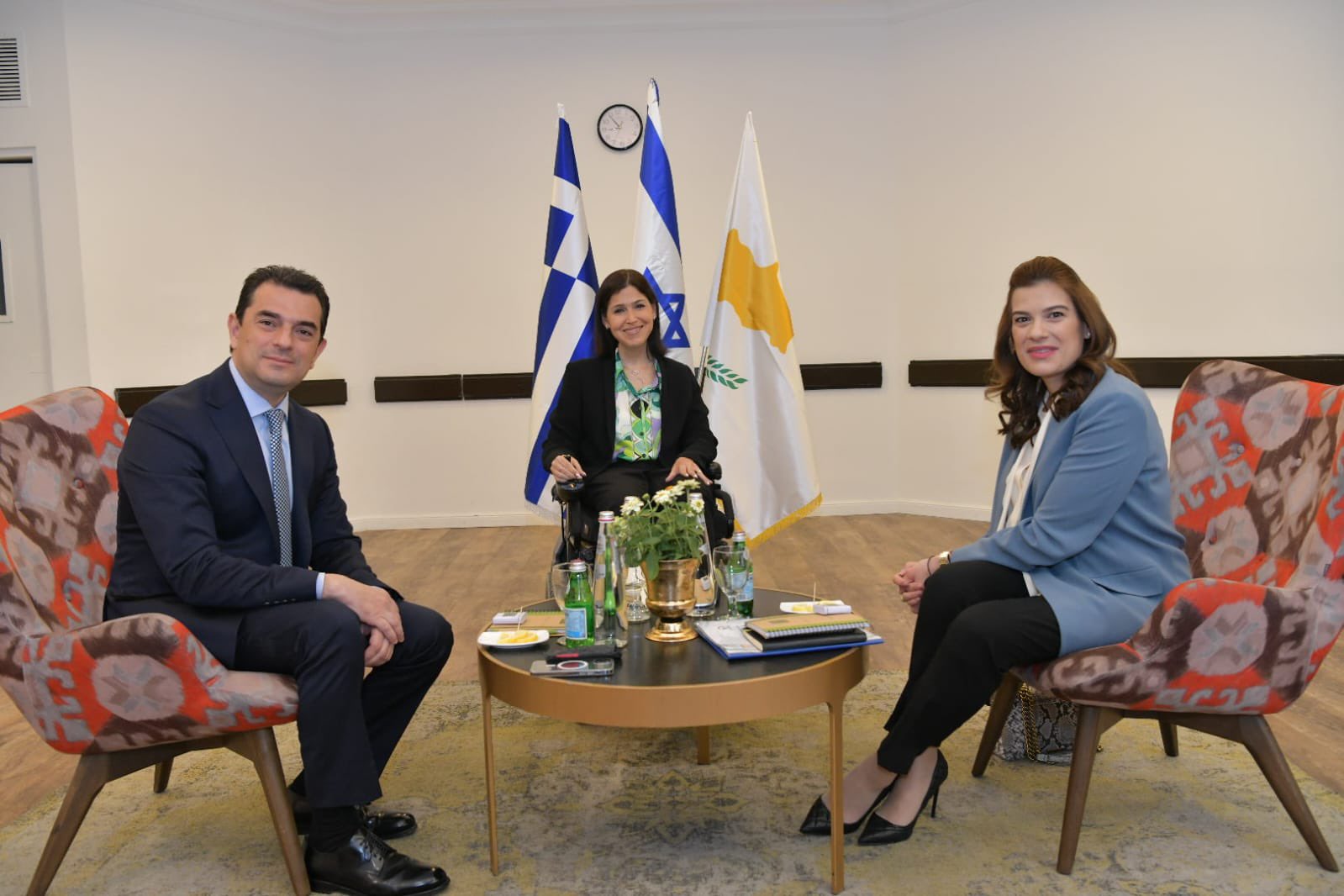The EuroAsia Interconnector has the potential to change the rules of the game in energy security and energy supply in European markets and elsewhere, Energy Minister Natasa Pilidou said on Monday, following a trilateral meeting with her Israeli and Greek counterparts, Karine Elharrar and Costas Skrekas respectively, in Jerusalem.
The Cypriot minister also stressed the importance of strategic cooperation in times of instability, especially during the current crisis in Ukraine.
These partnerships “not only involve the benefits of the bonds of friendships in our region and between our countries, but also present practical alternatives that we can offer to the world and in Europe in the field of energy security, as well as to be capable to rely on ourselves, safeguarding our own safety,” she said.
One of the main energy projects discussed during the trilateral meeting was the EuroAsia Interconnector, the European infrastructure Project of Common Interest (PCI3.10) and longest electricity interconnection in the world.
“We are proud to have secured more than €650 mln in funding from the European Union, which is making this a reality.
“We are already committed to the construction of the project, which has the potential to change the rules of the game for energy security and energy supply in European markets and elsewhere, despite the many present-day challenges around the world,” Pilidou added.
She also said that common infrastructure projects such as the electricity interconnection between the three countries are key to a “green transition”, saying that with her counterparts they discussed the potential of EastMed gas pipeline, the European Energy Corridor, and diversifying sources and routes.
The three ministers also presided over the first working group meetings initiated as part of the memorandum of cooperation agreed by the three countries’ leaders last year.
Most solar hours
According to Innovation Origins, a European platform about innovation, start-ups and technologies, Cyprus is the European country with the most solar hours, “but it is not generating a lot of renewable energy. Corona funds should help change that. And an undersea electricity connection should provide salvation.”
It added that “when it comes to energy, the island has to rely on its own resources. It is the only European country that is not connected to the European grid. The closest EU country is Greece, which is almost a thousand kilometers away.
“The EuroAsia Interconnector should put an end to this isolation. The world’s longest undersea electricity cable will connect the Greek and Cypriot electricity grids. This will enable Cyprus to import electricity (including green electricity) in the future and to feed solar energy into the grid. Israel will also be connected to the grid at a later stage.”
Regarding the EastMed energy corridor, which aims to supply the European markets with natural gas from the Eastern Mediterranean, Pilidou said after the Jerusalem meeting that the Eastern Mediterranean Gas Forum and the working groups that have been set up and have set the framework for energy cooperation at regional level, “are an excellent environment for discussing such projects”, such as the EastMed pipeline or the Aphrodite and Glafcos fields, to be exported to Egypt via a pipeline, most likely transporting Israeli gas as well.”
Breakthrough
Israel’s Minister Elharrar announced a breakthrough in talks over the revenue sharing dispute between Cyprus and Israel regarding the Aphrodite and Yishai natural gas deposits.
Having failed to resolve the issue by the energy companies involved, the ten-year dispute was not being handled at a state level.
Karine Elharrar said that a roadmap will be jointly defined, which will define the process of cooperation of the working groups on behalf of the two countries. The working groups will meet on a monthly basis and the two ministers will hold regular briefing in order to find the best possible solution to the dispute “soon”.
She added that, as a first step, a commonly accepted expert would be appointed, whose work would be determined by the working groups.
On his part, the Greek Minister of Energy and the Environment said stressed that the cooperation of Greece, Cyprus and Israel in multilateral energy schemes, including the EastMed pipeline, a network of LNG stations and the EuroAsia Interconnector, is of utmost importance for the further development of the trilateral cooperation.
“The implementation of these projects will be to the benefit of our three countries, the wider region and Europe, because they will further enhance energy security. This can be made possible by setting up an energy corridor to European markets through Cyprus and Greece, by combining LNG (liquefaction) stations and gas pipelines,” Skrekas said.









